第43章
Just as the intellect acts thus in the outside world with a view to the growth of the persons concerned, so in the case of the embryo itself does Nature form from the purest material the flesh and the body of the other sense-organs, and from the residues thereof bones, sinews, hair, and also nails and hoofs and the like; hence these are last to assume their form, for they have to wait till the time when Nature has some residue to spare.
The bones, then, are made in the first conformation of the parts from the seminal secretion or residue.As the animal grows the bones grow from the natural nourishment, being the same as that of the sovereign parts, but of this they only take up the superfluous residues.For everywhere the nutriment may be divided into two kinds, the first and the second; the former is 'nutritious', being that which gives its essence both to the whole and to the parts; the latter is concerned with growth, being that which causes quantitative increase.But these must be distinguished more fully later on.The sinews are formed in the same way as the bones and out of the same materials, the Seminal and nutritious residue.Nails, hair, hoofs, horns, beaks, the spurs of cocks, and any other similar parts, are on the contrary formed from the nutriment which is taken later and only concerned with growth, in other words that which is derived from the mother, or from the outer world after birth.For this reason the bones on the one hand only grow up to a certain point (for there is a limit of size in all animals, and therefore also of the growth of the bones; if these had been always able to grow, all animals that have bone or its analogue would grow as long as they lived, for these set the limit of size to animals.What is the reason of their not always increasing in size must be stated later.)Hair, on the contrary, and growths akin to hair go on growing as long as they exist at all, and increase yet more in diseases and when the body is getting old and wasting, because more residual matter is left over, as owing to old age and disease less is expended on the important parts, though when the residual matter also fails through age the hair fails with it.But the contrary is the case with the bones, for they waste away along with the body and the other parts.
Hair actually goes on growing after death; it does not, however, begin growing then.
About the teeth a difficulty may be raised.They have actually the same nature as the bones, and are formed out of the bones, but nails, hair, horns, and the like are formed out of the skin, and that is why they change in colour along with it, for they become white, black, and all sorts of colours according to that of the skin.But the teeth do nothing of the sort, for they are made out of the bones in all animals that have both bones and teeth.Of all the bones they alone go on growing through life, as is plain with the teeth which grow out of the straight line so as no longer to touch each other.The reason for their growth, as a final cause, is their function, for they would soon be worn down if there were not some means of saving them; even as it is they are altogether worn down in old age in some animals which eat much and have not large teeth, their growth not being in proportion to their detrition.And so Nature has contrived well to meet the case in this also, for she causes the failure of the teeth to synchronize with old age and death.If life lasted for a thousand or ten thousand years the original teeth must have been very large indeed, and many sets of them must have been produced, for even if they had grown continuously they would still have been worn smooth and become useless for their work.The final cause of their growth has been now stated, but besides this as a matter of fact the growth of the teeth is not the same as that of the other bones.The latter all come into being in the first formation of the embryo and none of them later, but the teeth do so later.
Therefore it is possible for them to grow again after the first set falls out, for though they touch the bones they are not connate with them.They are formed, however, out of the nutriment distributed to the bones, and so have the same nature, even when the bones have their own number complete.
Other animals are born in possession of teeth or their analogue (unless in cases contrary to Nature), because when they are set free from the parent they are more perfect than man; but man (also unless in cases contrary to Nature) is born without them.
The reason will be stated later why some teeth are formed and fall out but others do not fall out.
It is because such parts are formed from a residue that man is the most naked in body of all animals and has the smallest nails in proportion to his size; he has the least amount of earthy residue, but that part of the blood which is not concocted is the residue, and the earthy part in the bodies of all animals is the least concocted.
We have now stated how each of the parts is formed and what is the cause of their generation.